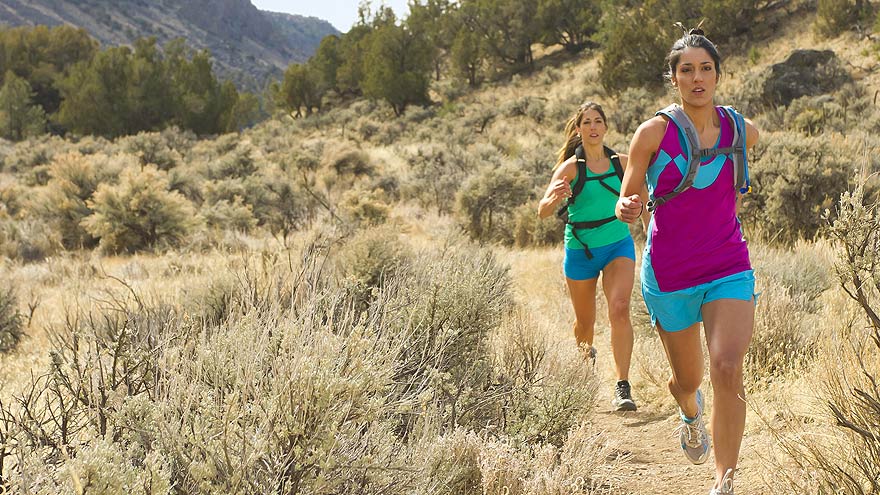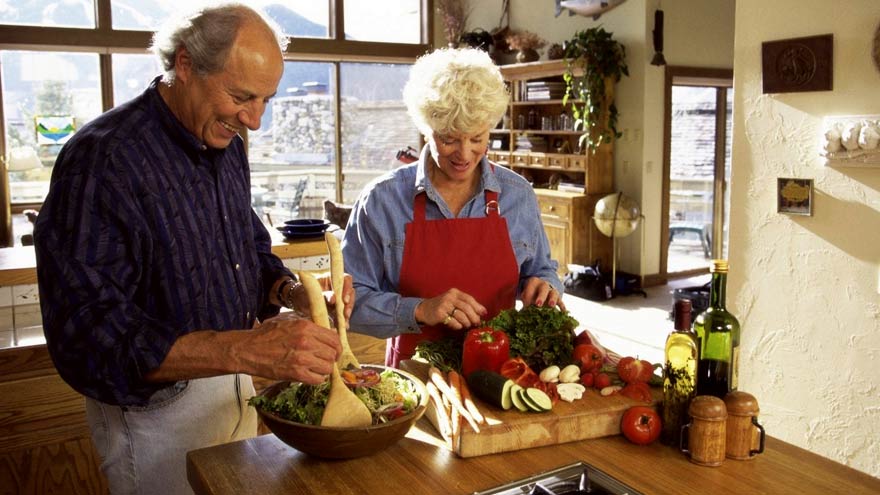Search
-
Use Caution: Mixing Over-the-Counter Medications Can Be Harmful
When you’re too sick to go to work but not sick enough for a doctor’s visit, over-the-counter medicines are a welcome relief to help alleviate that fever, runny nose or allergies. But because those medicines aren’t signed off on or managed by your doctor and pharmacist, you must be especially mindful of what you put into your body. Whenever you pop a pill, you want to ensure you’re taking the correct dosage, waiting the right amount of time before taking another dose and not mixing certain medicines. Too Much Tylenol/Acetaminophen Tylenol — or acetaminophen — is a popular pain reliever for many, but too much can be bad for your liver. “Our bodies have a finite ability to metabolize Tylenol,” says Andy Wright, clinical pharmacist at Renown Rehabilitation Hospital. “When too much builds up in the liver, it becomes toxic. In patients with medical conditions like cirrhosis of the liver or hepatitis, this could be disastrous.” Remember, acetaminophen is in more than just Tylenol and generic pain relievers. You may also see acetaminophen in flu, cold and cough medicines, like Nyquil, and some prescription medications including Norco and Percocet. Keep a list of the medications you take, and limit daily acetaminophen use to 3,000 mg per day. When you’re scanning medicine bottle contents, remember acetaminophen is also referred to as APAP, AC, acetam or paracetamol. Mixing Painkillers When you’re dealing with pain and not getting any relief, taking a different medication may seem like the easy solution. Maybe you take some Aleve — a form of naproxen — for a headache, but it isn’t working, so you switch to Motrin, an over-the-counter form of ibuprofen. Not a smart idea. Ibuprofen and naproxen along with aspirin are known as nonsteroidal anti-inflammatory drugs (NSAIDS). Because these medicines work in similar ways, they should never be combined or used in larger doses or more frequently than directed. Otherwise your risk of side effects can increase, which range from mild nausea to severe gastrointestinal bleeding. It’s also important to consider your family history when taking NSAIDs because, “recent studies have shown NSAIDs may have greater cardiovascular risks for people taking blood thinners or those with hypertension,” explains Andy. “A good example is ibuprofen: It has a relatively low gastrointestinal bleed risk while it has a moderate to high cardiovascular risk. The opposite is true for naproxen.” Rather than experimenting with multiple medicines, figure out which drug works best for you. You may find muscle soreness improves with aspirin, whereas when a headache hits, naproxen is best. Keep in mind that these medications aren’t always best for everyone in the family. “Aspirin in children and teens is not recommended unless under the supervision of a doctor,” Andy says. And pregnant and lactating women should generally avoid NSAIDS due to risk of birth defects and bleeding. “In both of these cases, acetaminophen or Tylenol are preferred but only if approved by an OB/GYN.” Fighting Allergies Over-the-counter antihistamines like Claritin, Zyrtec and Allegra have made fighting itchy eyes and runny noses a little easier. But these daily medicines — when taken inappropriately or in the wrong combinations — can also have an adverse effect. Similar to acetaminophen, you need to watch for antihistamines in other products. Sleep aids — like Tylenol PM and Unisom — commonly use an antihistamine known as diphenhydramine, which may increase your risk of overdose. “Combining antihistamines, or overdosing, can cause many adverse effects including dry mouth, blurred vision — even arrhythmias,” Andy says. “Only take these medications on their own.” If you’re still struggling with symptoms, you can talk to your doctor about adding an over-the-counter nasal steroid. Andy confirms the importance of closely following the directions listed on antihistamine (and all medicine) bottles. He has seen extended release nasal decongestants cause significant arrhythmias requiring medical care after a patient took the medicine with warm fluids. “The decongestant in question is designed to slowly release, but it can dissolve suddenly in the presence of warm liquids like coffee,” Andy explains. “This can cause the pill to deliver 12 to 24 hours of medication all at once.” Taking an Antidiarrheal with Calcium Calcium supplements and antidiarrheal medicines are another harmful combination. Calcium firms up your stool, but if taken with an antidiarrheal, can cause severe constipation. If you need to take an antidiarrheal, take a break from your calcium for a few days until you’re back to normal. Another consideration when taking calcium supplements or calcium-based antacids is gas. “I’ve had several patients report cases of excessive gas using Tums or calcium carbonate-based supplements.” Andy suggests instead “trying Maalox or Mylanta for indigestion and Citracal as a supplement.” Talk with Your Doctor or Pharmacist About Your Medications If over-the-counter drugs aren’t providing the relief you need, it’s time to see your doctor. And remember, for your safety it is important to keep your doctor and pharmacist up-to-date with any medications — prescribed or over-the-counter — that you are taking.
Read More About Use Caution: Mixing Over-the-Counter Medications Can Be Harmful
-
A Therapist's Tips to Prevent and Manage Osteoporosis
Want to know more about osteoporosis and osteopenia? We'll dive into these conditions and give you some handy tips on preventing future problems and taking care of your bones. What is Osteopenia? Osteopenia (low bone density) is the initial stage of bone mineral density loss, which can eventually progress to osteoporosis if steps are not taken to prevent it. What is Osteoporosis? Osteoporosis is a condition that weakens our bones. While it literally means “porous bone," it doesn’t mean that our bones are doomed to succumb to the changes that can happen to us silently over time. Our bones are living tissues that are constantly breaking down and remodeling themselves. Osteoporosis and osteopenia are typically diagnosed by testing bone mineral density using scans that your primary care provider can easily order. This is important testing because it dictates your risk of breaking a bone in common areas like your hip, wrist or spine. It also helps set the stage for talking with your healthcare team to develop a treatment plan. Most people will reach their peak bone mass in their mid to late twenties. There are several factors that increase our risk of osteoporosis or osteopenia as we age, such as menopause, genetics and other lifestyle factors. However, there are several things you can do to mitigate this breakdown and assist your body in the constant remodeling it does to our bones. 3 Controllable Factors to Build Strong Bones 1. Talk to your primary care provider They can go over a plan and prescribe things such as vitamin D, calcium and medications that can help if you are at risk or have osteoporosis or osteopenia. 2. Maintain a healthy diet Talk to a dietician if you need further help as they can be an invaluable resource to develop a plan. Eat foods rich in calcium, vitamin D and vitamin C. These assist with the rebuilding of bone. Examples include but aren’t limited to leafy greens, legumes, salmon and healthy dairy products. Don’t smoke — it directly correlates with a decrease in bone mass. Smokers also take longer to heal from a fracture. Limit alcohol to two to three beverages per week. Alcohol interferes with the production of vitamins needed to absorb calcium and the hormones that help protect bones. 3. Exercise Talk to your primary care provider to get a referral to physical therapy if you need help with exercise. Our bones adapt to the stresses we put them through. Therefore, exercise should be tailored to putting the right stress on our bones. There is good quality research that most exercise is safe when dealing with less bone mineral density. The exercises should be progressively challenging and increase the load for resistance and weight training at least two to three days a week. Examples include squats, step-ups, chest presses and rows. Exercises higher in velocity will lead to more power and bone adaptation. Examples include quicker push-ups, marching and quicker walks. Exercises that are weight-bearing will lead bones to adapt to the stress placed on them. Movements such as mini stomps, step-ups, jumping, jogging and so forth may be used depending on how your body tolerates these things to really stimulate bone adaptation. There are aspects of aging and bone health we can’t control, but we can take steps to minimize the chances of bone loss and osteoporosis. Talk to your healthcare team to determine your risk and don’t forget to show your bones a little TLC – you’re going to need them.
Read More About A Therapist's Tips to Prevent and Manage Osteoporosis
-
The Facts About Menopause and Early Menopause
Menopause is something that every woman experiences at some point in her lifetime. Learn what to expect and how you can help manage the symptoms and health risks. Most women don’t experience menopause until their 50s, but certain factors such as chromosomal abnormalities, glandular problems and chemotherapy can cause early menopause before the age of 40. No matter what your age, it’s a good idea be aware of the risks and treatments available to maintain a comfortable and healthy lifestyle. Health Risks of Menopause Two of the biggest health risks posed to women who have gone through menopause are bone density loss and risk of cardiovascular disease. Bone loss can be treated with bisphosphonate and estrogens. “Calcium with vitamin D and weight bearing exercise will also limit bone loss,” says Vickie Tippett, MD and OB/GYN at Renown Health. For cardiovascular risk, a healthy lifestyle is key. Discontinuing tobacco use, getting regular exercise and maintaining a healthy weight and diet all help reduce a woman’s risk of cardiovascular disease. Managing Discomforts of Menopause One of the most common complaints about menopause is the discomfort of hot flashes. “Hot flashes can be treated with systemic estrogen alone or in combination with progesterone or another agent similar to estrogen,” Dr. Tippett says. “Non-hormonal medications such as SSRIs and antidepressants also work.” Vaginal dryness, another common symptom of menopause, can also be treated with estrogen, estrogen-like compounds and personal lubricants. Pills, patches, creams and many other formulations are available to help alleviate discomfort. Knowing when, why and what to expect when it comes to menopause can help make the transition easier. Learn the facts about menopause in the infographic below.
Read More About The Facts About Menopause and Early Menopause
-
How Dorismae Reclaimed Her Life and Walking Shoes with TAVR
When lifelong trekker and adventurer Dorismae Weber learned her aortic valve was shutting down, she was afraid she was losing something she loved most: her daily walks. But following a trans catheter aortic valve implantation, Weber reclaimed her walking shoes — and her life. This is her story. An avid walker and traveler, Dorismae Weber’s life changed dramatically when she was exploring Mongolia and began having trouble breathing. Weber, 84, learned her aortic valve was shutting down. “It’s scary when you lose what you’ve always done,” Weber says. “I’ve walked all my life, and it’s always been the place I’ve gone to for comfort, for solving problems, for just enjoying. But all of a sudden, I couldn’t do this anymore.” Weber was not a candidate for traditional open heart surgery because she had heart surgery in the past. Then Weber learned about about trans catheter aortic valve implantation, also known as TAVR. She went to see Renown cardiologist Jake Ichino, MD, who put her through a battery of tests before performing the procedure. “Unlike the standard traditional open heart surgery, TAVR is a less invasive approach,” Dr. Ichino says. “We traditionally go up the artery of the leg with a catheter tube device and then we implant a valve without opening the chest.” After the TAVR procedure, Weber was once again able to complete her daily five-mile hikes. “When I woke up, all I can tell you is that I looked around and I thought, ‘I have a whole new life ahead of me — when I was told there was very little left,'” Weber says. She has also planned a trek just below the arctic circle with the environmental group Earthwatch. “I’m here because I had that procedure,” Weber says. “I’m here because they offered that procedure. And I’m very grateful for it, because I wouldn’t be here without it.” To learn more about TAVR, visit Renown’s Institute for Heart and Vascular Health.
Read More About How Dorismae Reclaimed Her Life and Walking Shoes with TAVR
-
What Every Woman Needs to Know About Dense Breast Tissue
In honor of International Women’s Day, we’re working to spread the word about taking care of your breast health and encouraging the women in your life to do the same. Heather Reimer is on a mission — a mission to educate women everywhere about breast tissue type. For women with dense breasts, knowing your breast tissue type is absolutely critical, as cancers embedded in dense breast tissue are not always detectable with a mammogram alone. Dense breast tissue requires a breast ultrasound screening to get a complete breast health picture. Whole Breast Ultrasound for Dense Breast Tissue Heather knows this firsthand. She has dense breasts, and in this video she shares her story about finding breast cancer during a breast ultrasound screening — cancer that went undetected with her mammogram screening alone. As a result of that experience, Heather founded Each One. Tell One. — a movement to encourage women to pass along this information to others and to prompt those with dense breast and implants to consult with their doctor to schedule a whole breast ultrasound screening. To schedule a mammogram or a whole breast ultrasound, call 775-982-8100.
Read More About What Every Woman Needs to Know About Dense Breast Tissue
-
Meatless Monday: Black Bean Tostadas
Research shows that plant-based diets can help manage — and in some cases aid — in the prevention of many chronic conditions such as diabetes, heart disease and even cancer. If you’re looking to adopt a healthier lifestyle, try incorporating more plant-based and meatless recipes into your diet — even if it’s just once a week. If you want to cut back on meat but not flavor, we’ve got you covered with this black bean tostada recipe. The list of ingredients includes a number of veggies and spices that are not only good for you, but will make your taste buds sing. The best part? This delicious, Mexican-style dish is so easy that even the most novice cook can have dinner served in just 15 minutes. Enjoy!
-
Carl and Janis Team Approach to Renowns Healthy Heart Program
Meet a couple that's all heart. After each had a heart attack one year apart, they committed to Renown's new Healthy Heart Program and support each other along the road to heart health. Almost a year to the day that Janis VanHorn had a heart attack, her partner, Carl Edson, had one too. "That kind of doubled the dose of making sure that we were doing everything that we could to continue with our life," VanHorn says. "It's a very life-altering thing.” And after Edson's quadruple bypass open heart surgery, he was grateful for the simple act of getting into the car with the woman he loves. "I was so relieved," he says. "I didn't realize how precious life was until that moment." The couple see the same cardiologist, Richard Seher, M.D., FACC, FSCAI, who recommended they participate in Renown's new Healthy Heart Program, a 12-week, 36-visit intensive cardiac rehabilitation curriculum that includes monitored exercising and cooking classes. Now they're both familiar faces at the program, which is located at the Renown South Meadows Medical Center. After several weeks, Edson says he has lost 10 pounds and VanHorton has lost inches and feels more toned. Tackling the program together has brought the couple closer and given them the opportunity to fuel one another's health goals and longevity. "I would be lost without this man," VanHorn says," and anything I can do to help him live longer, I'm going to do that." Edson adds, "She is to me my whole life, and I mean that sincerely. There's no one else I can turn to that has helped me in my life as she has, and I'm just trying to return the favor in a big-time way. She is my everything."
Read More About Carl and Janis Team Approach to Renowns Healthy Heart Program
-
How Does Your Garden Grow (In Northern Nevada)?
Ready to start your garden? Get started with these easy-to-follow tips from local expert, Liza Detomasi, Workman Farms. Gardening is in my family. We started Workman Farms in Fallon in 1964 and I started working here when I was 14. I have always had a love for food and enjoy gardening and cooking. Gardening can be great for your health. It has been known to reduce stress, lower blood pressure, put you in a good mood and you benefit from the flavorful fresh produce. If you are interested in starting a garden here is a short intro into gardening in northern Nevada. Step One: Location, Location, Location For the beginners be sure to choose a location in your yard that receives 10 hours of sunlight, it doesn't have to be continuous but a total of at least 10 hours is best. Prepare the ground before you plant with nutrient soil and compost from your local nursery. Step Two: Choose the right plants Northern Nevada can be a bit tricky to grow a successful garden. With our low yearly rain totals and summer heat there are some plants that just don't like it here. But there are many that thrive. Those that do are grouped into two categories – cool weather and warm weather. Cool Weather Veggies Plant in early spring Carrots Beets Celery Broccoli Cauliflower Lettuce Radishes Onions Potatoes Snow peas Strawberries Kale Cilantro Warm Weather Veggies Plant in early May to late spring Tomatoes Peppers Squash Green beans Cucumbers Pumpkin Tarragon Basil Parsley Rosemary Thyme Oregano Step Three: Enjoy! Always have fun and get creative! Start with a hamburger garden (lettuce, tomato, onion, pickling cucumbers), Salsa garden (tomatoes, peppers, onion, cilantro, tomatillos) or a stir fry garden (snow peas, carrots, broccoli, scallions). Never be afraid to ask your local nursery questions. Easy Plants for Desert Yards The Spruce provides a comprehensive list of nurseries in the Reno area to get you started. Happy planting!
Read More About How Does Your Garden Grow (In Northern Nevada)?
-
Air Guard RN Makes an Impact in Community and Beyond
Everyday, Renown salutes its more than 150 active military and veterans on staff. Becca Gilbert, a Renown trauma nurse, is an example of the many outstanding service members at Renown who are serving both their country and their community. Becca Gilbert, BSN, RN, wears many uniforms. When she’s not wearing scrubs in her role as a trauma nurse in the intensive care unit of Renown Regional Medical Center, she’s wearing fatigues as a first lieutenant in the Nevada Air National Guard. “Service is huge,” says Becca Gilbert, RN, of her role in the Air Guard. “It’s something that is ingrained in me and a big part of who I am as a person. I find a lot of pride in being a part of something that is bigger than what is going on in my world.” Renown Health was named one of 15 recipients across the nation — and the only health system in the U.S. — for the Department of Defense’s highest employer award, the Secretary of Defense Employer Support Freedom Award, for exceptional support of its military employees. The Employer Support of the Guard and Reserves and Renown held a ceremony June 29 to recognize the award and to honor representatives of Renown who currently serve in the Guard and Reserves. With her Air Guard background, Gilbert is preassigned veteran patients at the Renown ICU. She says she’s able to relate to the veterans and their families and create a quick bond with them. “I’ve been assigned patients who are guard members with traumatic injuries — it’s good but hard,” Gilbert explains. “But I really love working with patients who are veterans.” Gilbert’s first career was as a veterinarian technician. Then enlisted in the Nevada Air National Guard in August 2008 — following in her father’s footsteps — and trained to serve as an EMT. While she was a medic, she went to nursing school for her second bachelor’s degree and was able to commission as an officer after graduation. Serving Our Community Gilbert says her work in the guard offers benefits that help with her job responsibilities at Renown, where she’s worked for four years. “At Renown, we are really a team and rely on each other to make sure there are good outcomes,” she says. “In the guard, officers are often put in charge, which teaches you a lot of things — organization, decision making and thinking of others. I think all of those things go hand-in-hand with my role as a nurse, especially in the ICU. People in the guard count on you as an officer and leader, and that is really important in the ICU when patients are counting on you for a positive outcome.” Gilbert’s responsibilities in the guard vary, including training for disaster relief missions and ensuring service members are fit and healthy enough to perform their jobs. “Training is a large part of the military — trauma training, physical fitness training and staying current on certifications,” she says. Locally she also leads the Self Aid Buddy Care program, a United States Air Force program that encompasses basic life support and limb-saving techniques to help wounded or injured personnel survive in medical emergencies until medical help is available. With the guard, Gilbert has also been involved in a bleeding-control program for volunteers in the community. She teaches community groups how to stop bleeding if they are a bystander to a car accident or other type of event, and is working with Renown trauma surgeon Marty Bain, M.D. to implement the program at Renown as well. Making a Difference Abroad In January, Gilbert was presented with an opportunity through the Nevada Guard State Partnership Program to travel outside the United States to the Kingdom of Tonga in the South Pacific and work at the Women and Children Crisis Centre, which assists families who are dealing with domestic violence. Gilbert praised the women who work at the center for their efforts towards change, as she says domestic violence is common in Tonga. “The women who work at the Women and Children Crisis Centre are pioneers,” she says. “They are trying to make changes by documenting what is going on and providing statistics to the lords and kings of Tonga. Some of it still isn’t accepted, but they continue to help the women and children of Tonga. They are helping so many people.” Renown Health salutes Gilbert for her tireless service to her country and her community here at home.
Read More About Air Guard RN Makes an Impact in Community and Beyond
-
5 Tips to Protect Your Knees from Pain and Injury
Knee pain and injury can restrict movement and make it difficult to be active, but studies show that the right type of exercise can help prevent these issues. It’s no wonder our knees are highly prone to injury. They house a complex network of muscles, ligaments and joints, and are crucial to our agility and daily movements. If you are experiencing knee pain, it’s important to not ignore this message from your body. While it’s fairly common to have occasional aches, if the pain limits your ability to perform normal daily activities like climbing stairs or walking with ease, have a medical professional check it out. “The take-home message here is to listen to your body,” says Amanda Henriques, PT, DPT at Renown Physical Therapy. “We are all built differently and respond to exercise in different and unique ways. Running may feel great for one person, but always lead to injury for another.” At any age, it's important to protect and strengthen your knees to help prevent pain and injury. Here are five tips from our experts: 1. Strengthen your muscles Choose exercises that focuses on the muscles around your kneecaps, hips and pelvis and places extra emphasis on your core. These muscles will absorb some of the stress places on your knees, helping them stay balanced and stable. 2. Maintain a healthy weight Each pound of body weight produces five pounds of force on the knee. If you need to shed weight, start with low-impact activities to avoid increased stress to your joints. 3. Pick the right exercise Opt for exercise that put less stress on your knees, such as cycling, walking or swimming. Choose flat surfaces when walking for exercise and avoid activities that put extra stress on your knees, such as deep knee bends or downhill running. 4. Warm up before working out Don’t overdo the workouts in length or intensity, and stretch after exercise to help prevent injury. 5. Avoid high heels Wear shoes with good arch support specific to your choice of exercise that provide a stable base for your feet and legs. Replace running shoes every 300 to 500 miles. Other athletic shoes should be replaced after 500 miles of wear. These tips can help keep your knees strong and prevent injury. But if you experience an accident or trauma, seek medical attention and follow up with any rehabilitation recommendations you receive. Depending on the injury, your doctor may recommend physical therapy, where you will be guided through individualized exercises to strengthen and heal. “If you listen to your body and take the appropriate preventative measures, you can find the right type of exercise to keep you happy, healthy and fit for life,”
Read More About 5 Tips to Protect Your Knees from Pain and Injury
-
5 Tips to Keep Your Brain Nimble
Not all memory loss is inevitable — there are several things you can do to keep your brain nimble at any age. Find out how brain exercises, a healthy diet and daily movement can improve your brain’s focus. A modest decline in memory is to be expected as we get older. We forget someone’s name but recall it later. We find the need to make lists to remember things more pressing. Manageable? Yes. But frustrating nonetheless. The good news is we don’t have to sit back and succumb to age-related memory loss. There are concrete things we can do at any age to keep our brains sharp, nimble and engaged. Five Simple Brain Exercises 1. Volunteer or participate in meaningful activities outside of work. This engages your brain and emotions in a healthy, positive way. 2. Engage in moderate, regular exercise to tone body and mind. Overall good health is critical to brain health. Even casual daily walking can boost your mental abilities. 3. Eat the rainbow. Choose to include plenty of colorful fruits and veggies and ease up on processed foods in your daily diet. The proper nutrients can improve circulation to your brain, which will amp up your cognitive abilities. Consult your doctor for the best diet and supplement choices for your specific health needs 4. Get a blood test to determine your body’s hormonal and nutrient levels. Specific hormones and nutrients can affect cognition. Be mindful of your cholesterol levels, and if you take cholesterol medications, such as statin drugs, be aware they can also affect your mental faculties. 5. Engage in brain activities like reading, crossword puzzles, Sudoku and Trivial Pursuit. These types of activities can improve your brain’s focus and concentration and — most important — test your memory and general knowledge. You derive more benefit by engaging in these activities consistently for short amounts of time, so make a weekly appointment with yourself to build brainpower.
-
DIY Heart-Healthy Marinara Sauce
The convenience of marinara sauce in a jar is pretty hard to beat. But with some extra time in the kitchen, the nutritional value of traditional sauce — already packed with good stuff — goes off the charts.










